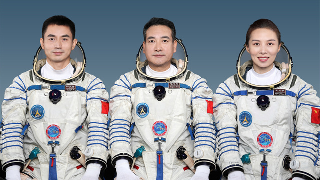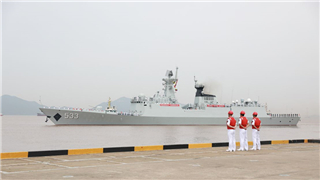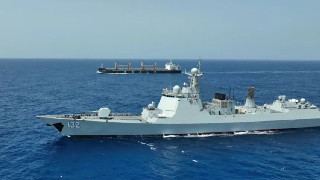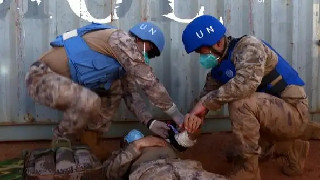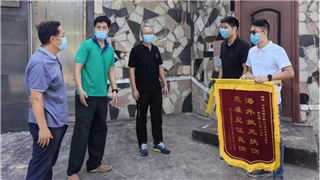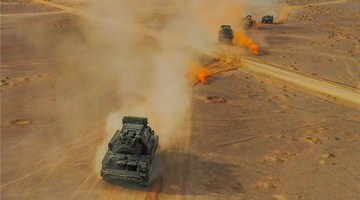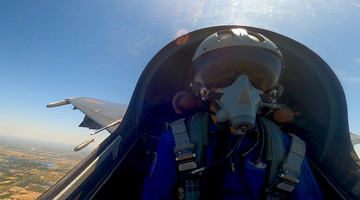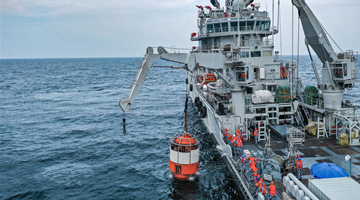By Xie Ruiqiang
The largest-ever Rim of the Pacific 2022 (RIMPAC 2022) military exercise led by the US is ongoing in and around the Hawaiian Islands and Southern California. Both Japan and ROK assigned large-scale fleets to participate in the exercise. Considering the accelerated military collaboration among the three countries, the spokesperson of the DPRK Foreign Ministry said on July 2 that the latest NATO Summit has made one thing clear: by militarizing Europe and expanding NATO to the Asian-Pacific doorstep, the US is aiming at curbing and containing China and Russia at the same time, with the US-Japan-ROK military alliance as a critical tool.
The US, Japan and ROK are strengthening military cooperation.
After Yoon Suk-yeol came into office, the military cooperation among the three countries quickly heated up. They have organized several trilateral military exercises or exercises involving the three. The US Air Force kicked off the Red Flag-Alaska exercise in Alaska on June 10, which included about 300 participants from the Japan Air Self-defense Force (JASDF) and ROK Air Force. It was the first training session during Biden’s term that involved only the three countries.
Yonhap News reported that during RIMPAC 2022, ROK, the US, Japan and Australia will carry out the Pacific Dragon exercise, which included the detection and tracking of ballistic missiles, near Hawaiian waters in early August.
The US-Japan-ROK Pacific Dragon anti-missile exercise that was initiated in 2016 is aimed at enhancing intelligence sharing among the three countries, strengthening their interaction in terms of intelligence networks, and testing the compatibility and interoperability of their anti-missile systems against DPRK.
In addition to joint military exercises, Japan and ROK are considering resuming the General Security of Military Information Agreement (GSOMIA), which was originally signed in November 2016 to facilitate their sharing of military information on DPRK’s nuclear missiles. However, the agreement has been all but non-existent owing to historical issues, the export of semiconductors, and other spats between the two countries.
Are the US, Japan and ROK on the way to an alliance?
Political interaction among US, Japan and ROK has promoted their military collaboration.
On June 29 and 30, local time, the NATO Summit was held in Madrid, the capital of Spain. Leaders of the ROK and Japan participated in the summit for the first time and they held a meeting between themselves. On the afternoon of June 29, US President Biden, Japanese Prime Minister Fumio Kishida, and ROK Prime Minister Yoon Suk-yeol held a trilateral meeting, capturing close attention as the previous such meeting was almost five years ago.
According to Li Chunfu, vice director of the Center for Asia Research at Nankai University, the twenty-five-minute meeting was very short for a trilateral event – too short to talk about anything concrete. It was more of a political symbol indicating that the three countries would work more closely together.
However, the improvement of the ROK-Japan relationship and the tightening of military cooperation among the US, Japan and ROK won’t be plain sailing. Historical issues, territorial disputes, and public mood in each country are all obstacles.
At the end of May, ROK’s oceanographic research ship conducted research activities near the disputed islets lying halfway between the two countries, called Dokdo by ROK and Takeshima by Japan, incurring a protest from the Japanese side.
There is also no small objection from within ROK against enhanced trilateral military cooperation. ROK’s Chosun Ilbo published an article saying that many people are worried about the improvement of relations on the premise of security cooperation will motivate Japan to further expand its military capacities.
When Yoon Suk-yeol was still running for the office, he was asked about the ROK-US-Japan military alliance and Japan’s involvement in the Korean Peninsula, to which he answered that Japan could enter ROK in emergency period, but (the alliance) may not necessarily be based on that precondition. That response caused quite an uproar.
Editor's note: This article is originally published on thepaper.cn, and is translated from Chinese into English and edited by the China Military Online. The information, ideas or opinions appearing in this article do not necessarily reflect the views of eng.chinamil.com.cn.
